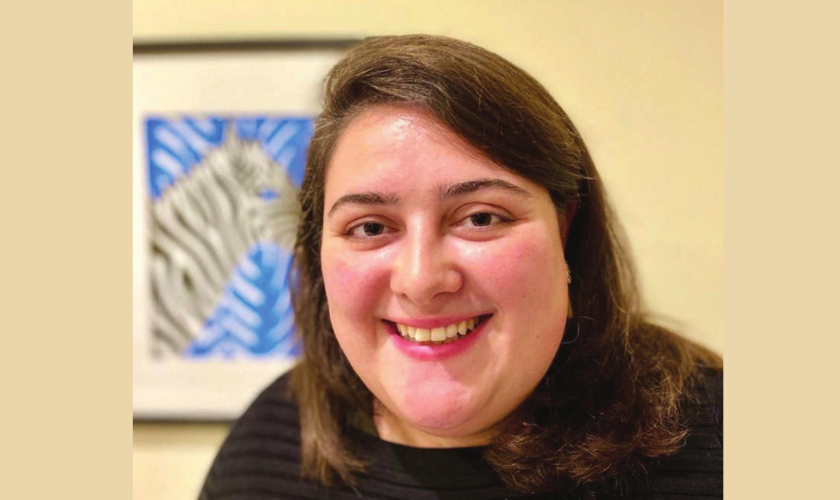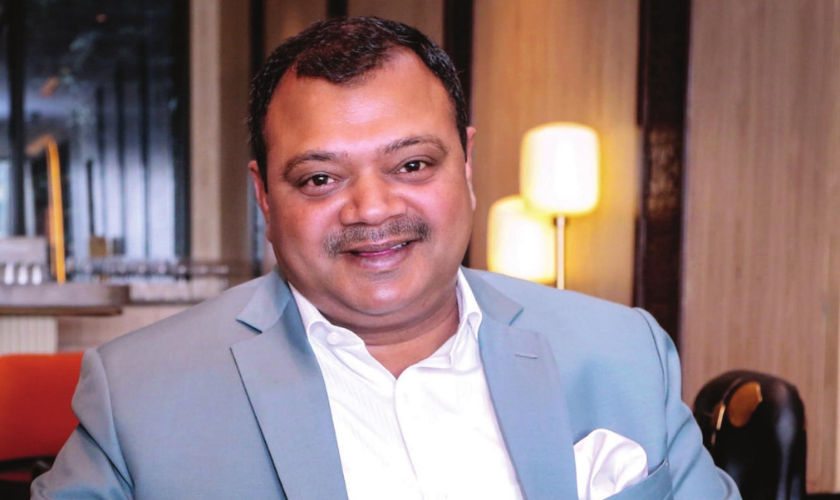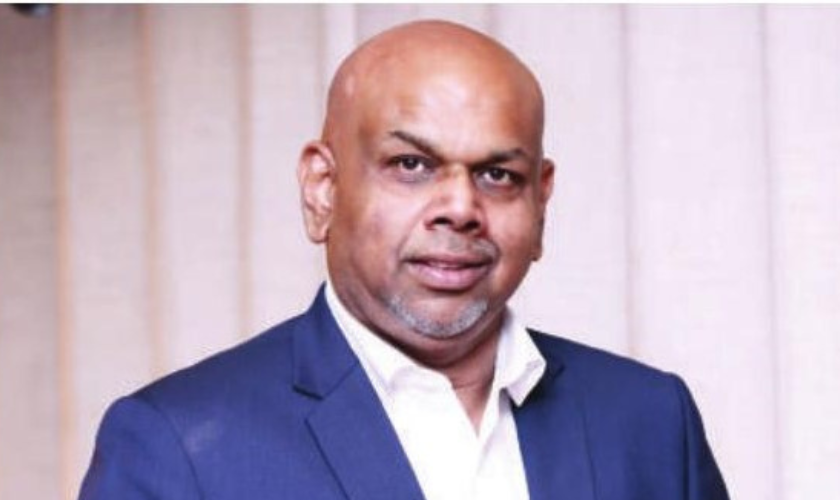Jill Richens is the Regional Director of Arts for the British Council in South Asia. She leads the development and implementation of arts programmes that foster the growth of South Asia’s cultural and creative industries while building connections with the UK. Since 2018, Jill has been instrumental in delivering WOW – Women of the World and is deeply committed to leveraging arts and culture to advance gender equality. Previously, Jill was the Head of Development at the British Council, where she secured funding from trusts, foundations and corporate donors to support the Council's global arts programs. With a career spanning arts and gender equality since 2011, Jill has contributed to projects across the UK, Uganda, Malawi, Afghanistan and Thailand. In an interview with New Business Age, Jill talked about the activities of the British Council in Nepal, among other issues. Excerpts:
You have played a pivotal role in organising Women of the World (WOW) festivals globally. How was your experience working in Nepal, particularly with Kathmandu Metropolitan City (KMC), compared to other countries?
This year marked the seventh edition of the WOW Festival in Nepal. Our journey began in 2017, and over the past seven years, I have had the privilege of meeting incredible women from across the country—from Janakpur to Lumbini to Kathmandu—united in their pursuit of gender equality.
This year, the festival returned to Kathmandu for the first time since 2018, thanks to the support of Kathmandu Metropolitan City (KMC), the Community Service Centre, and a consortium of partners and collaborators. The contributions of community partners and KMC have been vital in creating a space where platforms like WOW can thrive. A central goal of WOW is to celebrate and showcase the achievements of women. Hosting the festival in Narayanchaur, Naxal - a vibrant, central meeting place in Kathmandu - provided the perfect stage to challenge perceptions, raise awareness and celebrate these achievements in the heart of the city.
One key difference between Nepal and other countries is the number of partners we work with. Our ambition is to reflect diverse voices, learn from experts and champion the work of individuals and organisations across Nepal and the UK. This year, we had our largest cohort yet, with 11 curatorial teams and over 200 artists and speakers coming together to make WOW Nepal a success.
I was deeply inspired by the strength and enthusiasm of individuals and organisations in Nepal, who brought their ideas and energy to collectively build a gender-equal world. The creatives, thinkers, and ‘doers’ I have met in Nepal consistently motivate me to reflect on how I can improve, challenge myself and approach my work in new and meaningful ways.
How do festivals like WOW help empower women, particularly in countries like Nepal, where the gender gap remains significant?
Most programmes and activities addressing gender issues are often confined to closed rooms, taking the form of conferences and meetings. While these conversations are important, they typically involve a limited group of people, leaving certain individuals and communities excluded from the dialogue.
In contrast, a festival like WOW is open to everyone, creating an inclusive space for participation. In a country like Nepal, where community and interaction are deeply ingrained, a festival environment provides an ideal platform to discuss pressing global issues, including gender equality.
WOW offers something for everyone - from film screenings and performances to panel discussions and conversations, as well as activities for young people and workshops for diverse groups. As Jude Kelly, who founded WOW in the UK in 2010, says, “If you are a woman or know a woman, WOW is for you.” I love this message because it invites all groups, including men and boys, to engage with WOW and reflect on their role in supporting gender equality.
The achievements of WOW are far-reaching. Some are immediate - one common piece of feedback I often receive during the Festival is from male attendees who share how their perception of women and their capabilities has changed after participating in WOW. While changing perceptions is an important first step, it is equally crucial to create an enabling environment that supports women in reaching their full potential.
In Nepal, WOW has been particularly effective in fostering connections among women and providing access to resources that enable collaboration. The Virangana Comics Collective is a powerful example of this impact. What began as a stall at the WOW Marketplace during the 2018 edition grew into a full-fledged initiative when artists Promina Shrestha, Shraddha Shrestha and Bandana Tulachan came together to form the Virangana Comics Collective. Their mission was to support other women illustrators, comic artists and designers in addressing gender issues through their work. In 2019, the British Council supported Virangana with a grant to develop two comic anthologies. The first edition, published by Fine Prints Nepal later that year, was a significant milestone. Through these anthologies, as well as workshops and creative engagements, Virangana has become a brand ambassador for the British Council’s creative commissions in gender.
Virangana has provided opportunities and capacity-building for emerging artists, LGBTIQA+ youth and vulnerable young people. It has also collaborated with UNICEF and other UN agencies, and has played a key role in designing and delivering WOW’s Young Feminist Corner in recent editions.

How do arts and culture intersect with the fight for gender equality? And how does the British Council leverage cultural platforms to challenge and transform gender norms?
Through arts and cultural activities, artists can raise awareness about the challenges faced by women and girls in Nepal and around the world while engaging audiences in critical conversations about gender and equality. At WOW Festivals, artists highlight the realities of discrimination, violence and inequality through their work, challenging societal notions of gender roles. Artistic and cultural practices often provide a more accessible and impactful way to discuss gender inequality. They create safe spaces where difficult issues can be explored, and social and cultural norms around gender can be questioned and transformed.
I firmly believe in the idea that “seeing is believing”, and arts, as a medium, excels at making invisible issues visible. The British Council’s Missing Pillar report, which is freely available on our website, delves deeper into culture’s role in promoting sustainable development and gender equality.
For instance, since 2018, WOW Festivals in Nepal have collaborated with photojournalists to shed light on harmful practices affecting women and girls. In 2018, we partnered with Uma Bista, whose work focused on Chhaupadi (menstrual shunning). In 2019, we worked with Nabin Baral, who explored Boksi Pratha (witch accusations and persecution). These powerful projects were showcased as exhibitions that complemented the launch of a UN report on harmful practices, amplifying awareness and sparking vital conversations.
How does the British Council ensure that marginalized women from other provinces and remote areas can access platforms like WOW?
Through WOW, we engage with hundreds of Nepali women from various parts of the country. It is essential that the festival represents voices from diverse backgrounds across Nepal, including those experiencing different forms of marginalisation. We achieve this in several ways. Before each festival, we host "Think Ins”, where we bring together community members, artists, thought leaders and curators to discuss the topics and content that need to be included in WOW. These discussions are collated to form the foundation of the festival's programming.
We also provide grants to organisations across Nepal to create work that is showcased at WOW. These grants are offered through open calls to encourage diverse participation. For instance, this year, we featured Hear Me Sing, an ethnomusicology project by Smarika Phuyal, which explored the contributions of women artists to musical practices across Nepal. Another example is a music video produced by Blind Rocks!, in collaboration with a team of disabled artists, to promote inclusion through song and visuals. Looking ahead, we plan to continue organizing WOW Festivals in different regions of Nepal. The last two editions in Janakpur and Lumbini provided opportunities to build connections beyond urban centres and engage women and girls who might otherwise lack access to such programming.
How does the British Council ensure that the opportunities it provides truly reach those who need them most, rather than just women from certain social classes who speak English and live in Kathmandu?
Geographical and digital divide is the context of not just Nepal, but all around the world. Over the past few editions, we have worked with our partners to make a sincere effort to ensure that our offers are accessible to people irrespective of geography, access or socioeconomic standings.
We have systems in place which have, to a large extent, enabled us to breach these barriers and make WOW diverse and inclusive. For example, the grant opportunities that we offer to artists, curators and gender actors are structured in such a way that language does not pose a barrier; people can apply in Nepali, English or another language practised in Nepal. Applicants are also able to apply via video/audio or offline by filling out a form, or by meeting us and sharing their proposed idea.
As we work with multiple partners to implement each WOW, we encourage them to implement selection processes that enable them to collaborate with and seek participation from diverse groups of people. Through open and curated opportunities, this year, for example, we have been able to feature more than 25 disabled women artists in the festival. The festival itself was accessible, and featured dual translation and sign language interpretation, meaning either as a contributor or as an audience member, different groups of people were able to participate in WOW.
Gender inequality results from various intersectional issues, including class, caste, geography, and patriarchy. How does the British Council recognize and address this intersectionality in its pursuit of gender equality?
Before starting any project, we commission a gender analysis. This independent study examines intersectional issues, social norms, gender stereotypes and the structural barriers women face in a given country. The analysis helps us, first and foremost, to challenge and suspend any assumptions we might have about gender equality in Nepal. It also guides us in prioritising our response and ensuring we address the root causes of gender discrimination. Most importantly, it supports the "do no harm" principle, ensuring our activities do not exacerbate existing inequalities.
We recently published a ‘Gender Analysis in India’ and are in the process of commissioning an updated analysis for Nepal. Once complete, this study will be shared on our website to enhance knowledge and understanding of the intersectional nature of gender inequality in Nepal.
As I mentioned earlier, working with the right partners and curators is critical. Our teams must include individuals with lived experience of intersectional issues related to gender dynamics. For example, this year we collaborated with the Karnali Arts Center from Karnali Province. The collective focuses on participatory theatre and addresses intersectional issues such as caste-based discrimination and gender inequality. Ten artists from the collective organized a forum theatre session at WOW, which not only explored intersectional issues but also provided an opportunity for the artists to present their work to a Kathmandu audience, many of whom might not have been familiar with their work.
Festivals like WOW play a crucial role in raising awareness and amplifying voices, but women and non-binary people often require long-term support for their artistic and cultural endeavors. Does the British Council provide this kind of sustained support?
A festival format - due to its short duration - is often seen as having a more immediate, short-term impact. However, over the years, we have made strategic efforts to ensure that the artists and professionals we work with benefit from the organising process in several meaningful ways.
For instance, this year we worked with a diverse group of curators, some of whom we have collaborated with before, and others who were new to our work. This provided a valuable opportunity for everyone involved to learn from each other and grow. Most of the curators were women leaders in their respective fields, many of whom had not worked together before. As part of our impact assessment for WOW, we track the new connections made by women during the festival and how these connections contribute to allyship and advocacy efforts in Nepal.
Through our collaboration with multiple partners in each edition, curators, partners and collaborators interact and create a network of professionals who can continue to work together on gender-focused projects beyond WOW. We’ve seen partnerships form through WOW, such as with the Katha Ghera-produced play But Still, We Rise, where some of our WOW speakers from previous editions took the stage as theatre artists.
What is the biggest lesson you’ve learnt from your years of experience organising WOW festivals and working with the British Council?
I have learnt the importance of local solutions and leadership. The British Council’s role is to convene, connecting networks across arts, education, non-profit and governmental sectors. We facilitate the exchange of ideas, but the solutions must be locally rooted. A major barrier to gender equality is the lack of women in leadership roles, which limits diverse perspectives in decision-making. By supporting partners with dispersed leadership structures, WOW in Nepal promotes local solutions and highlights community leaders.
Projects like EDGE and GEMS have been successful in equipping girls and women with skills to lead independent lives and inspire others. WOW is another initiative that empowers women and supports gender equality
I have also learnt the importance of networks. WOW Festivals have taken place in over 45 locations across six continents, and no country has achieved gender equality. That is why WOW is crucial, creating a platform where diverse individuals from artists to scientists can collaborate and learn from each other.
A significant barrier to gender equality is the lack of funding for gender initiatives. Only 4% of bilateral aid is allocated to gender equality, and progress toward SDG targets is stalling, especially as challenges like climate change worsen the situation for women.
(This interview was originally published in January 2025 issue of New Business Age Magazine.)













